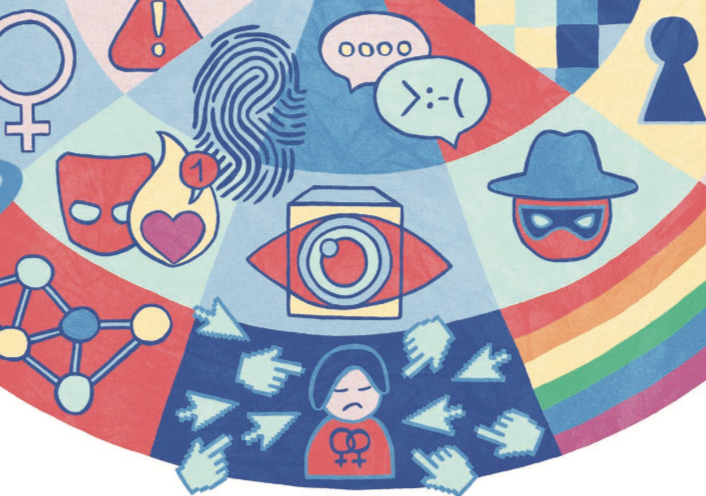As part of the 16 Days Against Gender Based Violence, we are releasing our new report “Online Privacy Threats to Women and the LGBTIQ Community in Lebanon,” which documents the state of digital privacy for women and LGBTIQ individuals in the country.
We found that although the digital space can be useful for creating safe spaces for marginalized groups, online privacy violations are rampant, and can sometimes lead to physical threats. Inequality between men and women is present in the online sphere, with issues such as the non-consensual sharing of intimate images and harassment disproportionately affecting women. Combating these issues is even more difficult as the authorities often exacerbate privacy threats, specifically in regard to the LGBTIQ communities.
The hostile conduct of the authorities towards LGBTIQ individuals is exemplified by arrests based on physical appearance and violations of privacy rights by searching phones for any form of incriminating evidence.
The treatment of women and LGBTIQ individuals, who are already marginalized in most parts of society, leave them susceptible to a wide range of threats in the digital sphere.
The report catalogues online threats reported in national media outlets over the last five years and uses a series of interviews with NGO employees, who explain the severity of specific threats, such as blackmail and doxxing, in order to assess the emerging pattern of digital privacy breaches.
The detrimental effects of these issues are highlighted by using specific case studies, such as a gay man being outed online and subsequently fired from his job or a woman being impersonated on Facebook and harassed for her clothing choices.
Furthermore, the report establishes that the lack of a comprehensive legal framework for privacy rights and data protection has facilitated the violation of individual and collective privacy without repercussions.
Overall, there is no effective recourse to prevent online privacy breaches, hence there is a need for a greater focus on digital privacy. Civil society groups generally do not address the online sphere due to lack of resources and those that do still have room for improvement. More targeted solutions towards online privacy threats, such as a helpline or digital awareness training could help as well. Read the report here for a more detailed account of the findings.
For a primer on the intersection of gender and privacy at a global scale, read Privacy International’s new report “Reclaiming Privacy: From Oppression to Liberation.”
OnlinePrivacyThreats_EN


